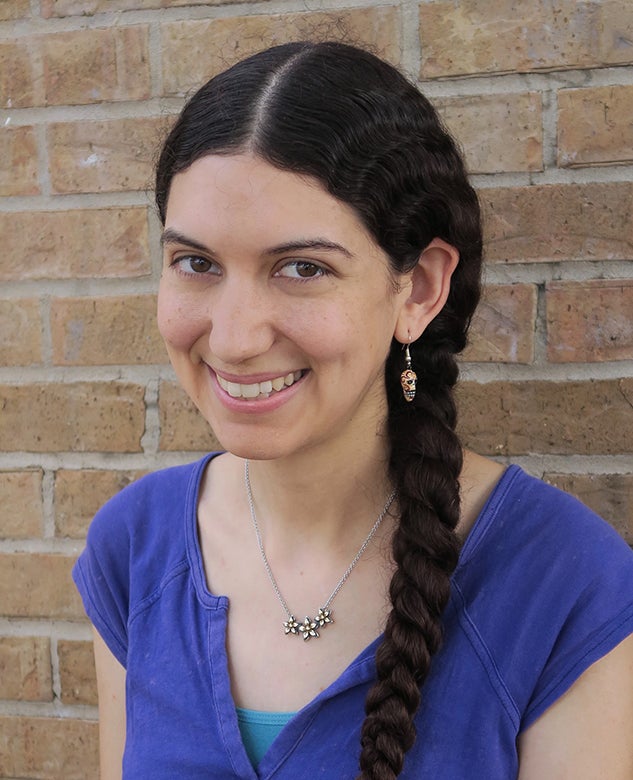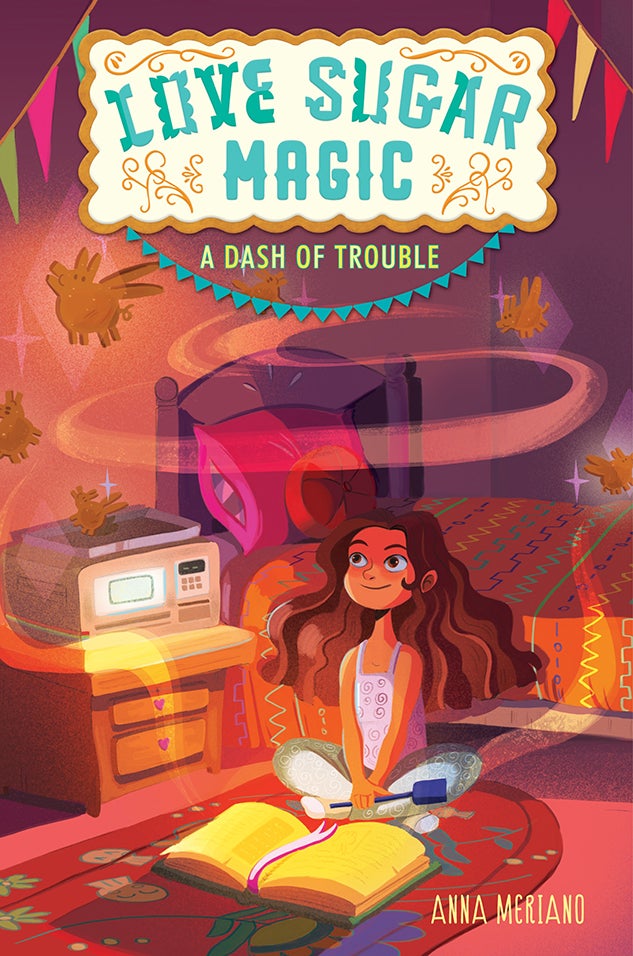Q&A: Anna Meriano

Spring 2018
Interview by Taegan Howells '18
Anna Meriano ’13 may do most of her work in a classroom as a tutor and part-time creative writing teacher, but she can certainly write her way around a bakery. Meriano’s debut novel, “Love Sugar Magic: A Dash of Trouble,” stars 11-year-old Leonora “Leo” Logroño, who discovers that the women in her family are brujas — witches of Mexican ancestry. Caught up in a world of magic, Leo must decide what to do with her newfound powers. Meriano weaves a story of family, friendship and magic in a novel that will enchant readers of all ages.
Did you always want to be a children’s author?
I always wanted to make up stories. I started writing before I knew which way the letters faced, and I made and illustrated a picture book when I was 4 years old. I’m drawn to children’s literature because that’s still what I love reading. I find that children’s writers tend to feel their responsibilities to their audiences more keenly than do adult writers. We want to write books that turn kids into readers. I think this focus on the audience keeps children’s literature fun, earnest and entertaining, which is why the books can be so enjoyable for people of all ages.
What inspired you to write this book?
The inspiration for the story came from Dhonielle Clayton and Sona Charaipotra, the founders of CAKE Literary (a book packaging and literary development company with a commitment to diversity). When I first met with them to discuss the project, what drew me in was the way culture, tradition and magic blended together to become a real celebration of family and heritage. I’ve always loved books about girls discovering powers they never knew they had, so I knew pretty quickly that I absolutely wanted to write this book.

How does your writing reflect your culture?
First of all, the whole idea of the book’s family magic is tied to Mexican-American culture and traditions, and I wanted that heritage to be a source of power and joy for Leo and her sisters. At the same time, Leo worries that she won’t fit into her family’s tradition, especially because she can’t speak Spanish as well as her older sisters. This uncertainty reflects my own feelings being both Latina and white and growing up in Texas, surrounded by so many other people with Latino heritage. Ultimately, I hope the book affirms that there are many different ways to express or connect to culture, and that there is strength in tradition and heritage.
You’ve said in previous interviews that you like translating English songs into Spanish and American Sign Language. Do you think language is important for diversity?
I do. I love seeing how different languages mix in communities or even small groups where many members are multilingual. As someone whose goal is to manipulate language and create characters with different viewpoints, it never hurts to gather new ideas from a wide range of sources.
How did you nurture your literary aspirations at Rice?
I stubbornly took and retook all the fiction courses in the creative writing track. I even convinced some of my English professors to let me write stories instead of essays for my finals. For my senior thesis, I worked on a collection of short stories with Ian Schimmel [lecturer of English] as my adviser, which helped me develop enough material to apply for creative writing MFA programs. Rice ended up being a great place for me to write, even though I had to be a little creative about my path.
